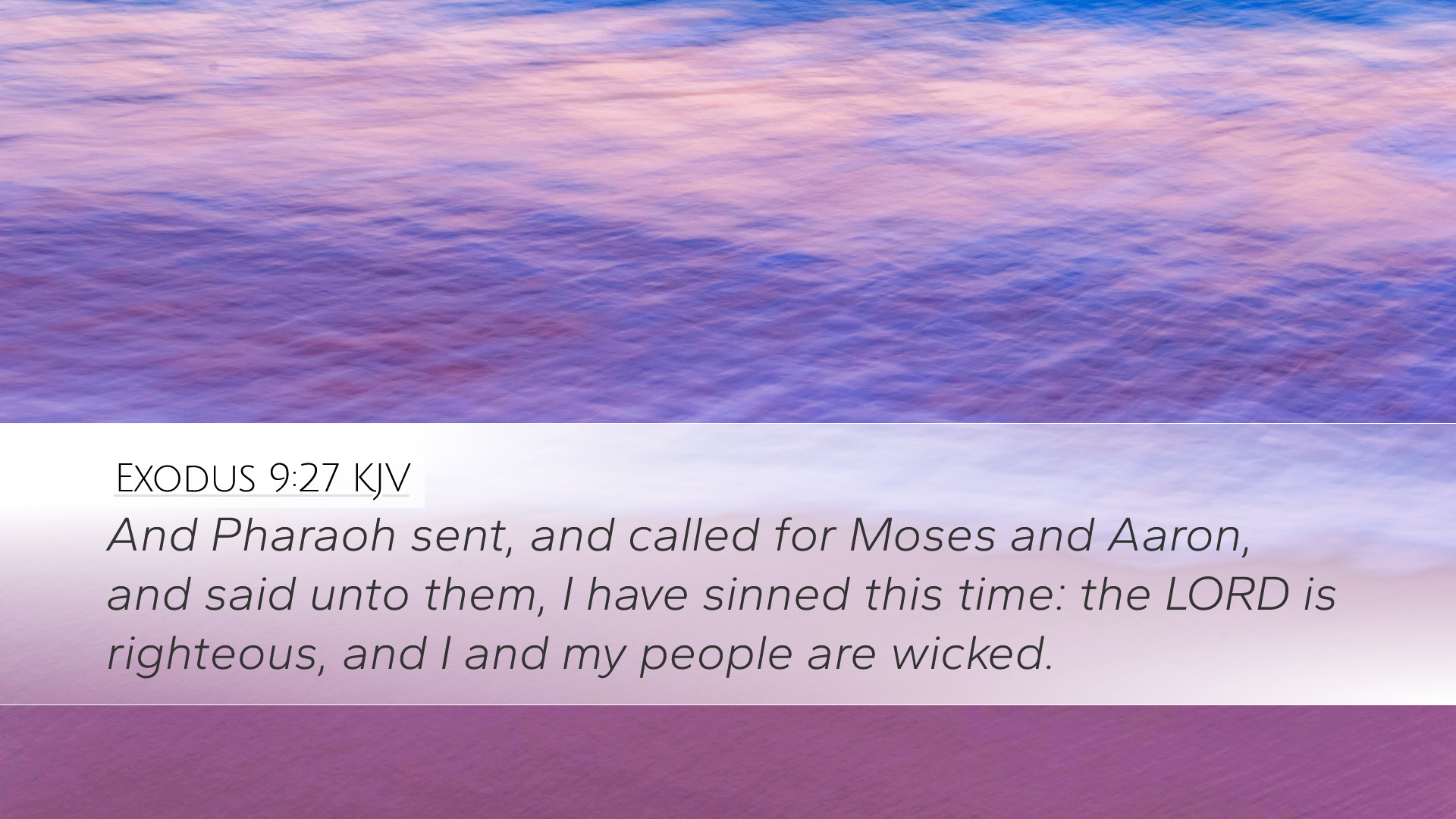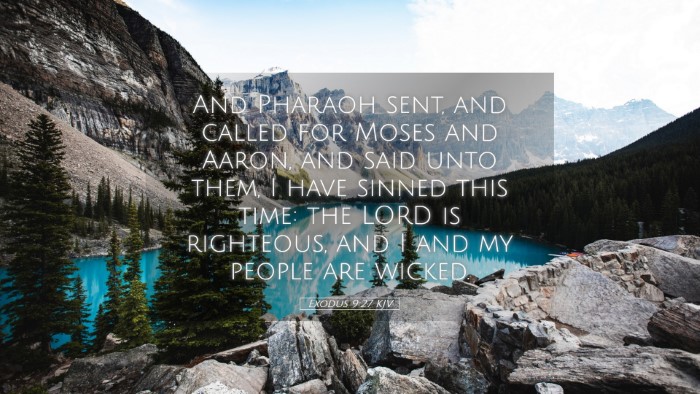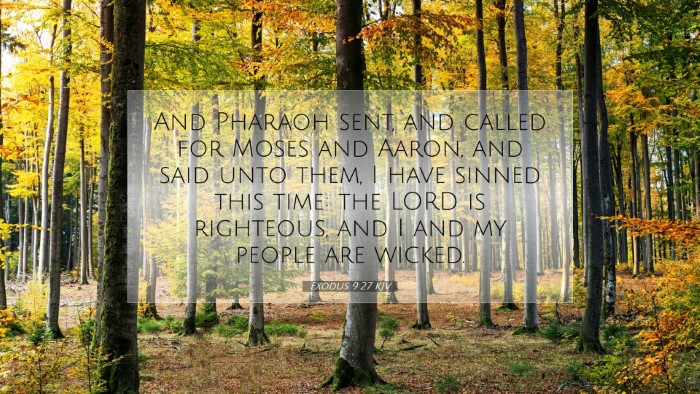Exodus 9:27 Commentary
Bible Verse: Exodus 9:27 - "And Pharaoh sent, and called for Moses and Aaron, and said unto them, I have sinned this time: the LORD is righteous, and I and my people are wicked."
Contextual Overview
Exodus 9:27 is a pivotal verse within the narrative of the plagues that God sent upon Egypt. This particular encounter illustrates Pharaoh's temporary acknowledgment of wrongdoing contrasted with his continued resistance to God's command. The context of the plagues serves as a demonstration of God’s power and the hardness of Pharaoh's heart, a theme that runs throughout the book of Exodus.
Theological Insights
1. Acknowledgment of Sin:
Pharaoh's admission of sin is profound. It shows a rare moment of humility from a ruler whose heart had been hardened. Matthew Henry notes that this admission signifies a momentary clarity regarding the righteousness of God and the wickedness of his own actions, which is often the first step towards repentance.
2. The Nature of True Repentance:
While Pharaoh acknowledges his sin, the true nature of his repentance remains questionable. Albert Barnes comments on the superficial nature of Pharaoh’s admission, emphasizing that real repentance involves a change of heart and not merely a recognition of fault. This brings forth the idea that true repentance is deeper than mere words and is often accompanied by a transformative action.
Commentary from Public Domain Sources
Matthew Henry:
Henry articulates that Pharaoh’s statement reflects the reality that he recognizes God’s power. However, Henry also emphasizes the inconsistency in Pharaoh's behavior, as he repeatedly turns back to disobedience. This inconsistency serves as a lesson in the danger of insincere repentance—acknowledging God’s authority while simultaneously rebelling against it.
Albert Barnes:
Barnes expounds upon the implications of Pharaoh’s statement regarding the LORD's righteousness. He highlights that Pharaoh, while recognizing God's righteousness, fails to act upon that recognition with genuine repentance. This suggests that mere acknowledgment of sin does not equate to true repentance or faith. Barnes challenges readers to reflect on their own responses to God’s justice.
Adam Clarke:
Clarke sheds light on the implications of Pharaoh's concluding statement about his people being wicked. He suggests that such a statement underscores the impact of leadership and genuine acknowledgment of collective sin. Clarke encourages a self-reflective approach, urging leaders to examine their influence and the consequences of their actions upon those they lead.
Lessons for Today
- The Danger of Hardness of Heart: Pharaoh’s story serves as a warning against the hardness of heart that can result from repeated sin and disobedience.
- The Importance of Genuine Repentance: True repentance is more than just acknowledging wrongdoing. It requires a heartfelt change and a commitment to align one’s life with God's will.
- Leadership and Responsibility: Those in leadership positions must recognize the weight of their words and actions, as they influence the morality and direction of their communities.
- The Sovereignty of God: This verse exemplifies God’s sovereign will, demonstrating that He is ultimately in control and will be honored, despite human stubbornness.
Conclusion
Exodus 9:27 encapsulates a powerful moment in the narrative of the plagues, allowing readers to see both the mercy of God and the folly of man. Through the lens of public domain commentaries, we gain rich theological insights into the nature of sin, the complexities of repentance, and the responsibilities of leadership. As we engage with this text, may we be moved to pursue genuine repentance, recognizing both our need for God’s grace and our call to live righteously.


